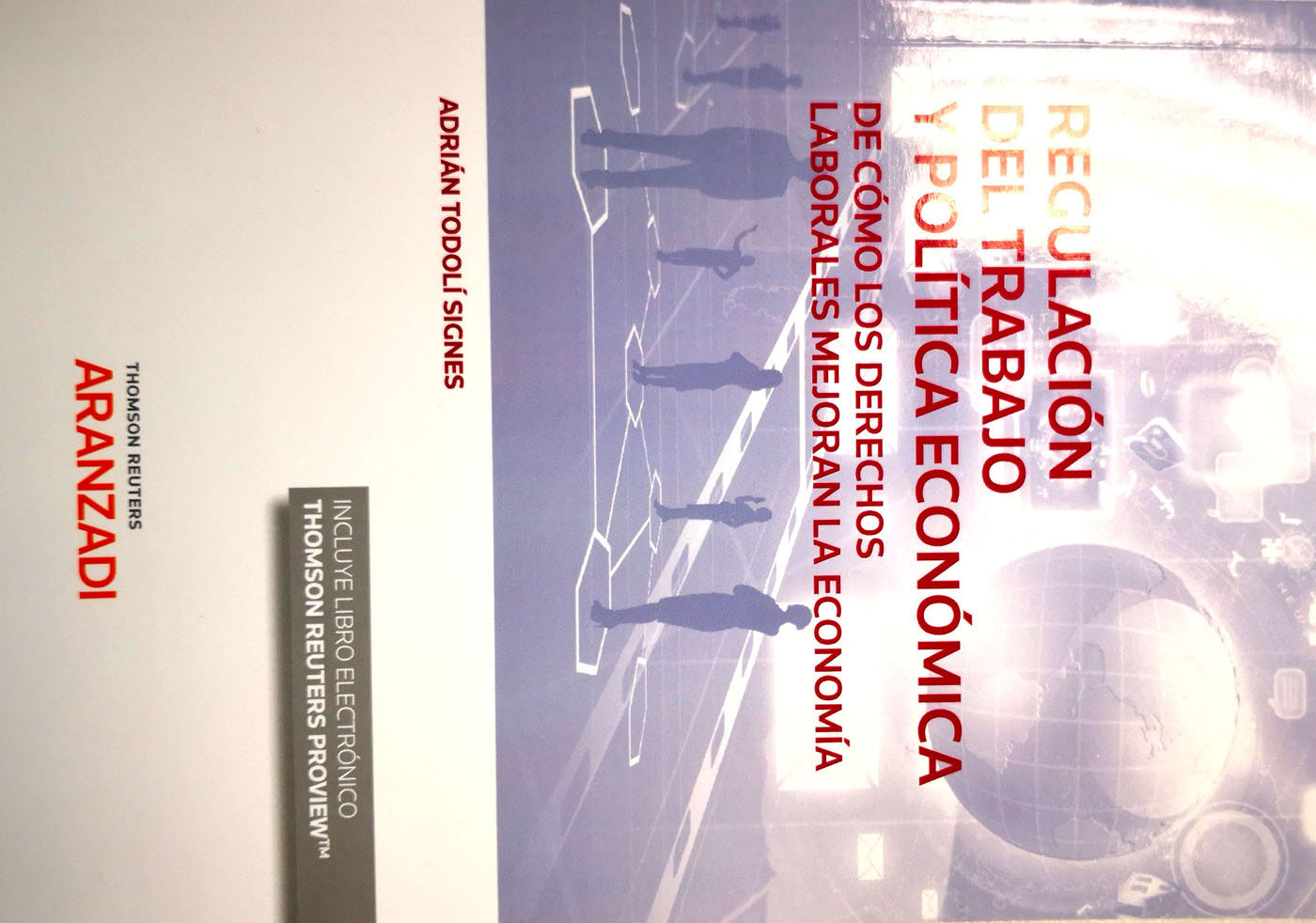
Adrián Todolí, professor at the Department of Labour and Social Security Law at the University of Valencia (UV), has published a book in which he argues that the improvement of the economy depends not only on having more workers employed, but on they having better working conditions. In the work, the result of his research, he lists how reducing temporary employment, increasing the size of the company, strong collective bargaining and raising the minimum wage, among others, are the best option to grow economically.
“Labour rights must not only be protected for reasons of social justice and necessary social cohesion, but there are good economic arguments that justify their existence”, explains Todolí, who in his book De cómo los derechos laborales mejoran la economía (Thomson Reuters Aranzadi, 2021) states that there is no conflict between efficiency and social protections.
The new approach arises from the fact that in the last two decades, unemployment indicators have been no longer considered as a key factor in measuring the “health” of the labour market. The emergence of the poor workers makes having a job insufficient to guarantee a satisfactory life. The social conflict (e.g., yellow vests, relocations) in recent years, as the IMF has asserted, is due to the growth of social inequality and economic polarisation, which have had as their last expression the Brexit, Trump and the rise of far-right policies in various countries.
Todolí aims, in line with the request of international organisations, to a reinforcement of public intervention with which to reduce economic polarisation and improve the quality of employment of the most disadvantaged with which not only improve their quality of life, but also the economy (competitiveness and productivity of companies).
In this sense, Todolí introduces a new story to justify the existence of labour standards: “there is no conflict between efficiency and social protections. On the contrary, labour regulation is necessary to increase economic growth”, says the UV professor.
Thus, the expert explains that the legal preference for the permanent contract and the rules that reduce temporary employment improve staff productivity and allow companies to invest in training and increase competitiveness. The training of temporary workers with a high level of turnover, their experience in the job, as well as their motivation to make an effort will be less than in permanent workers.
In addition, Todolí argues that the wage increase “pushes towards innovation (methodological and technological), which will cause an increase in productivity that, in turn, ends up producing improvements in the general level of employment and its quality”, argues “With low wages, companies have little incentive to invest in technology and human capital formation. It is more cost-effective to hire more labour to obtain the amount of product they require, although along the way the productivity of each worker falls. On the other hand, low wages allow inefficient companies to survive at the cost of paying their workers less”, explains Todolí.
Informal work and false self-employed
Informal work and false self-employed create unfair competition with those companies that do comply with the legislation. “It is crucial that labour standards – minimum wage, collective bargaining at the sector level – affect all companies in the sector equally, given that the ability of a company to adopt high productivity strategies to improve its competitiveness will be limited if its rivals can compete based on low costs and precariousness”, explains Todolí.
For these reasons, the professor from the Department of Labour Law and Social Security of the UV concludes: “Only a balanced distribution of the benefits generated in the company can guarantee the collaboration and effort of the workers. In this sense, equality and meritocracy are not only moral principles to be pursued, but they are essential requirements for the generation of wealth and must be implemented through strong labour standards and collective agreements”. In this sense, he cites that the IMF, in the study “Redistribution, inequality and growth” showed that, contrary to what was historically believed, social equity and economic efficiency go hand in hand.
Images:
.jpg)










